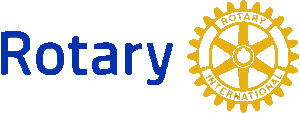ICC - Projects since 2019
ICC - Project No. 1
Extension and refurbishment of the elementary school of Jo Goth
At the ICC meeting on the occasion of the Rotary International Convention in Hamburg on 3 June 2019 the idea was first discussed to extend and refurbish the elementary school at Jo Goth.
During the ICC meeting in September 2020 the RC Makli (District 3271) presented a concrete project for the intended expansion and refurbishment of the elementary school of Jo Goth. There was agreement to realize this project for which an increasing need was seen.
Alois Kühn, member of the German section of the ICC, succeeded in winning his Rotary Club, the RC Einbeck-Northeim (District 1800) to apply for a District Grant for the co-financing of the Jo Goth school project. Significant support for this application also came from the Social Fund of District 1841 which is the leading district of the German section of the ICC.
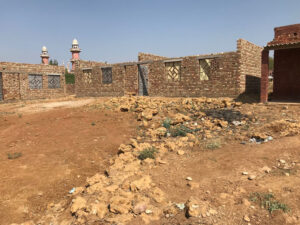
The application for the District Grant was submitted in February 2022 and approved by The Rotary Foundation in September of the same year. The funds of the District Grant of 17,750 USD which correspond to approximately 60 per cent of the investment expenditure of the project were transferred to Pakistan in February 2023.
With the funds of the District Grant the number of classrooms of the elementary school of Jo Goth can be expanded from two to six. In addition, a multifunctional hall and a boundary wall is to be co-financed with these funds.
The additional classrooms will make it possible to supplement the existing pre-school with a first and second grade as well as with a third to fifth grade.
The approximately 150 children of Jo Goth will benefit from this Rotary investment.
ICC - Project No. 2
Support of elementary school in Pakhora in Buner Valley, Diamer
The “Children Education Foundation & Charity Diamer”, a non-governmental organisation under the leadership of Ameer Ullah, a local tour guide, had built a new elementary school with two classrooms and a teachers room with the help of the wife of an Italian mountaineer and Michael Beek, a German tour guide.
In addition, two water treatment plants (PAULs) were provided, as the water is silted up by the flood. Now, 25 girls and 32 boys go to school there. A school bag, school dress, shoes and other utensils were given to the girls as well. The boys had received the same already before.

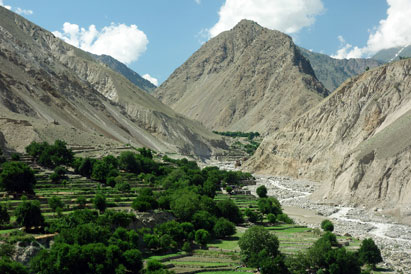
First, it was only a boys’ school. But different members of the ICC were of the opinion that girls should also have the chance to go to school. Therefore, Michael Beek approached the ICC and other organisations for support. The necessary funds had quickly been collected. Then, Ameer Ullah arranged a meeting with the elders of the area. They supported the idea with great enthusiasm. Soon, the teachers-room was converted into a class room for the girls. A toilet was built for the boys and girls as well.
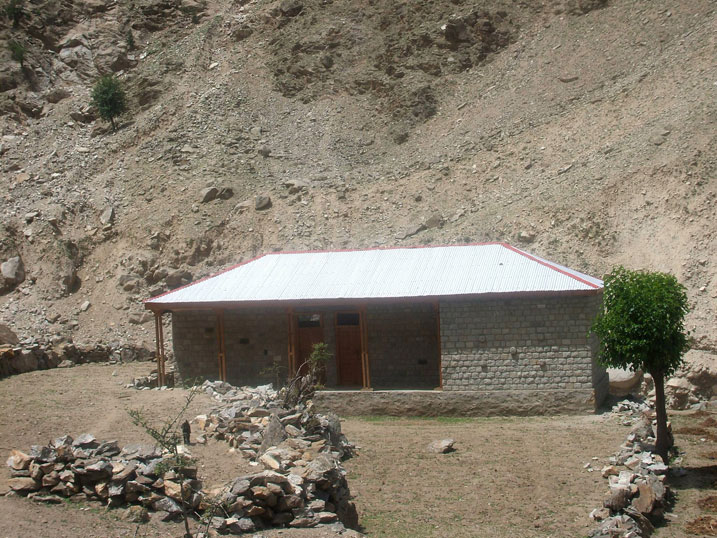
Ameer Ullah wrote: „I had a detail meeting with the residents of Pakhora valley. They were thankful for your Foundation support for education in the valley. I discussed about girls’ education, the parents were very eager to send their girls to school if there was any possibility. So, I would suggest enrolling girls and accommodating them in the boy’s school until we have a separate school for girls in the valley in future. The girls’ strength is around 25 to 30. Therefore, we will need to hire one more teacher to manage the students when schools are open. We will also need uniforms and teaching material for girls. This would be a great initiative for girls’ education which is very rare in remote areas.
Flood River Diversion in Buner Valley
Buner Valley, located in Tehsil Chilas Diamer District, is the famous valley where the west face of Nanga Parbat lies. The valley has around 15000 inhabitants. And Jall a village of 350 people in 100 households. We draw your kind attention to that serious matter of historic flood, which our valley Jall is badly facing 2010 up to now.
In July and August 2010, Pakistan was hit by heavy rainstorms, devastating floods, and landslides, with the Himalayan Karakoram Mountain valleys of Gilgit-Baltistan suffering. The livelihood of the people in this village is based on livestock farming and other agriculture. The villagers are poor, with each owning a small amount of land in this mountainous terrain. The flooding has destroyed their agricultural assets, land, and many houses. With the flood steam banks now wider, Jall village communities were afraid that the 2023 monsoon would result in further destruction. For this reason, they appealed to help them construct flood protection.

PROJECT IMPLEMENTATION
This project, designed to protect both lives and property, has been implemented through full involvement and participation with the support of ICC Germany organization’s project management, and supervision and monitoring during the entire implementation period of work.
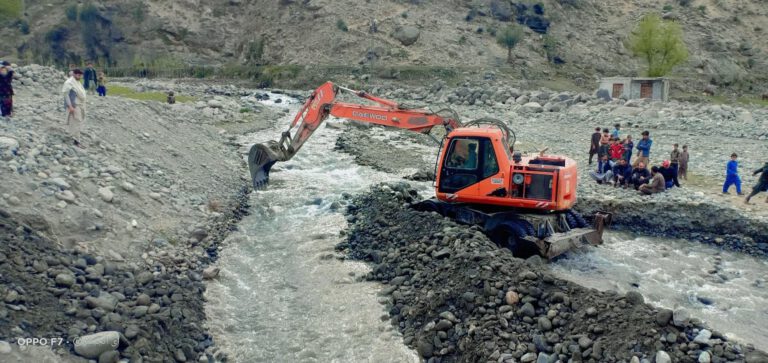
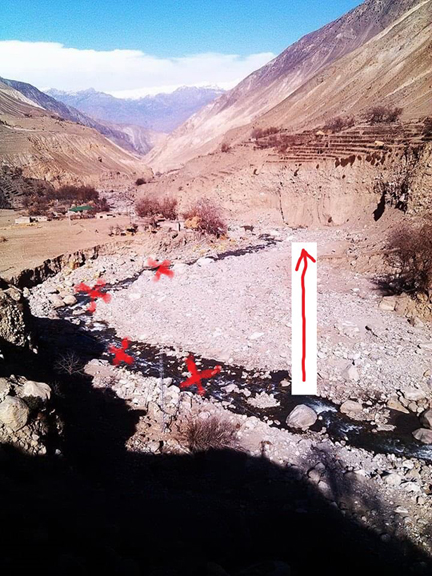
Sad event during work on girl’s school
While the work on a girls’ class was going on, a sad event happened:
A landslide hit one of the villages and buried six boys. You find the names of the boys in the list shown here.
The fathers of the boys, whom you see there as well, received a small compensation of 21980 PRs each, equivalent to 75 EUR. If you think of the importance of sons in these traditional families, this amount is just a token of compassion.
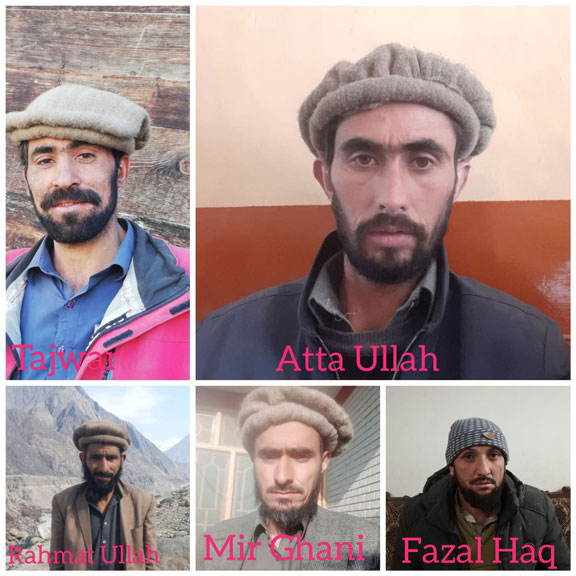

ICC - Project No. 3
Food bags and drinking water for newly flooded people close to Dadu, Sindh
PP Rafiq Ahmed Surhio, Secretary, Rotary Club Dadu Green wrote:
Hundreds of thousand people of Khairpur Nathan Shah City, Johi City and other flood affected areas shifted for shelter at Dadu City in the north of Sindh Province. They are now facing hunger, malaria, dengue fever, diarrhea and are missing appropriate shelter and temporary wash rooms for ladies.
Hope your timely help will decrease their problems.
ICC transferred quickly 3000 EUR to Rafiq, whom the ICC knew already from the floods in 2010.


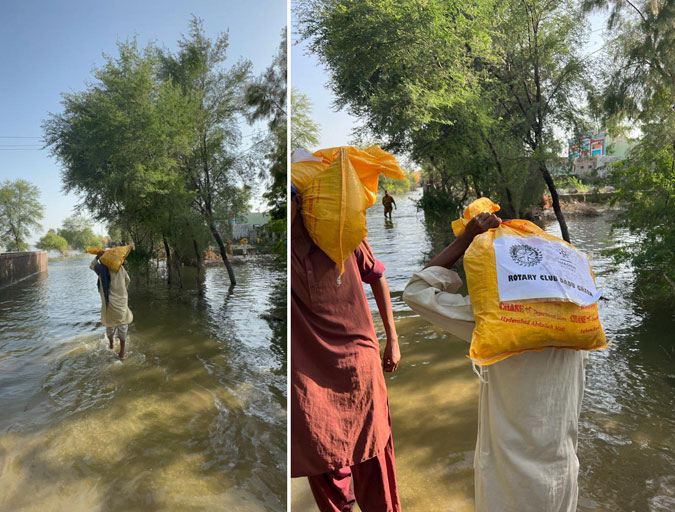
ICC - Project No. 4
Transport and distribution of six PAULs
PAUL: Portable Aqua Unit for Lifesaving
Why:
After disasters like earthquakes, flooding, etc., one of the most urgent problems is to provide the affected population with enough quantity of potable water. Wells and rivers are contaminated with bacteria, virus and other pathogens. People suffer from diarrhea, cholera and other diseases, and many, especially children, die.
In case of disasters, mobile high tech water works are deployed which need skilled operation personnel, energy and consumables. They serve several ten thousand capita but can only be used where infrastructure is operational. This is essential and must continue!
But:
with infrastructure destroyed, victims in remote areas are cut off this water source. Here, PAUL® is needed and brings immediate help.
Decentralized water supply in disaster + emergency PAUL® was developed at the University of Kassel, Germany. No energy, no chemicals, no skilled operator, no maintenance, no moving parts are needed. You can carry a PAUL as backpack hands free. 4 pictograms allow self-help even for illiterates. For permanent supply over many years see „PAUL®Station“-leaflet. (Source: PAUL leaflet attached)
For more details, please look at the leaflet attached.
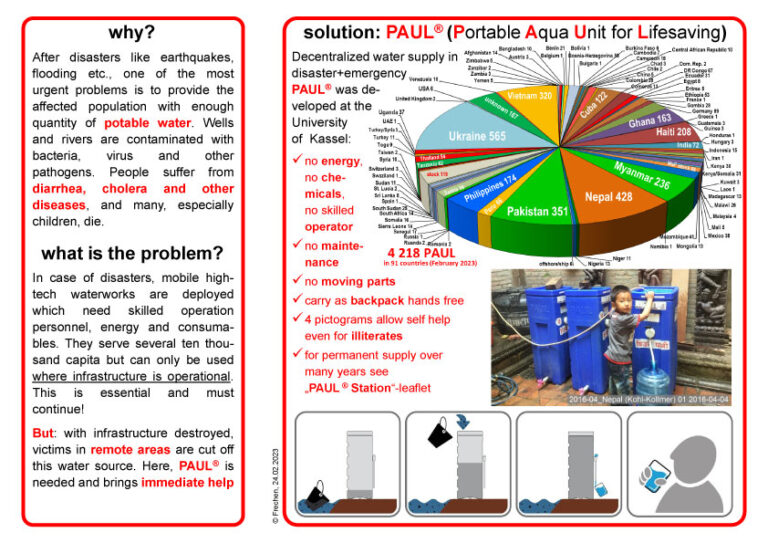
Distribution of 6 PAULs Water Filters to provide clean drinking water
The Social Fund of Rotary District 1841 (Upper Bavaria, Germany) has provided around 10000 EUR to buy and deliver six PAULs to villages in Pakistan without clean water supply. The transport to Pakistan was usually managed by the ICC-member Folker Flasse. But Folker died end of 2022, unfortunately. Therefore, new transport channels had to be developed. PDG Rainer Spaeth, also ICC member, took up this task on the German side, while Kamal Aziz, Brig. General Rtd., organized it on Pakistan side. He wrote:
“All the six PAULs have been delivered and received safely by the final Recipients“.
Auftrag Erledigt!
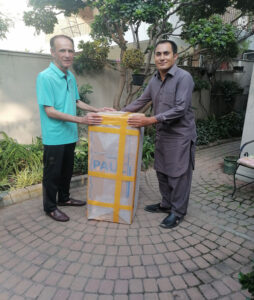
Distribution was done as per your instructions as under
a. Two PAULS were handed over personally to Mr Ameer Ullah from Children Education Foundation, Diamer for the villages in Pakora Valley in Nanga Parbat Region who have still not received PAULs. See the picture of Kamal and Ameer.
b. Two PAULS were delivered through Courier Service to PP Noor Ahmed Bhutto, Rotary Club Thatta, the person nominated by PDG Faiz Kidwai, for installation of PAULs in Rotary village Jo Goth in lower Sind.
c. Two PAULS were delivered through Courier service to Mr Rafiq Ahmad Surhio of Rotary Club Green Dadu upper Sind.
Gen Mustafa Khan, Chairman Al Mustafa Trust extended help by his organization in custom clearance of PAULs. Appreciated is also the prompt support and assistance provided by Mr Saif Ur Rehman, his Member Administration.”
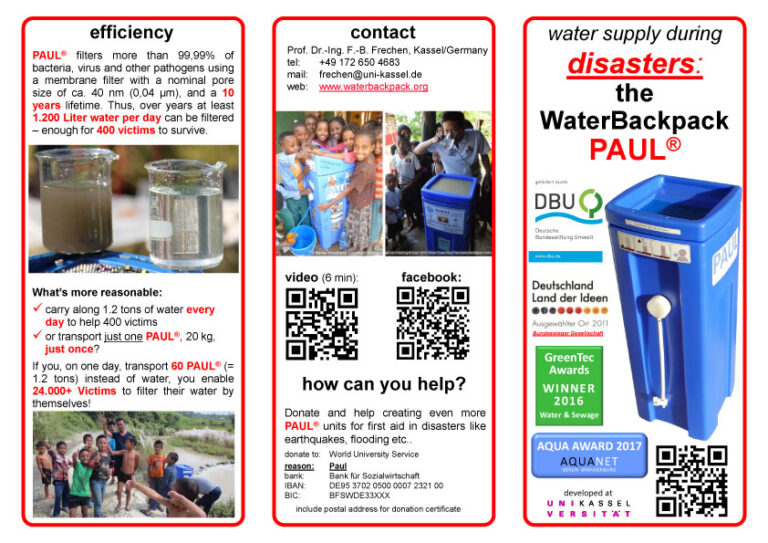
ICC - Project No. 5
Development of two Smart Villages in Sindh & Punjab
Update 2025
Proposal for 20 Sustainable Villages
Post-Flood Rehabilitation & Rebuilding Plan
This plan was developed by PDG, RI Director, and ICC Chairman of the Pakistan Section, architect Faiz Kidwai, together with RC Karachi Global, drawing on experiences from the pilot village Jo Goth, located two hours north of Karachi.
The guiding idea of this project is clear: Flooding will continue to return again and again. Distributing food bags is a humanitarian necessity, but it does not change the underlying dilemma. To create lasting impact, it is essential to build new flood-resistant villages or to strengthen existing ones, for example by constructing protective dams.
Sustainability, however, goes beyond physical safety. A sustainable village, often referred to as an Eco-village, is a community that strives to be socially, culturally, economically, and ecologically resilient. The technologies and practices needed for this vision range from drip irrigation, afforestation, water harvesting and filtration to renewable energy such as solar, wind and biogas. They also include sanitation and waste management, cattle farming, low-cost housing, women’s empowerment, vocational training and the establishment of clinics with mother-and-child care.
As of 2025, families do not cook inside the shelters, but in a designated outdoor dining and social area equipped with a traditional mud stove, the Choolah, which has its own chimney for smoke ventilation. The shelters themselves remain smoke-free. One eco-toilet serves two housing units. Ownership of the new dwellings is formally transferred to the female head of the family, strengthening women’s rights and ensuring long-term security. For an update, please refer to the current project report.
In the long run, 20 villages should be developed and develop itself to become sustainable.ICC - Project No. 6
2022 Flood Rapid Relief Response (FRRR)
Background of the project: Unprecedented floods 2022
The unprecedented monsoon rains and associated floods during the months of July and August 2022 affected almost whole Pakistan including the Sindh province where it caused massive losses and damages not only to the human lives but also to the houses, crops, and livestock. The people of Sindh never witnessed such extreme monsoon rains and floods during the last few decades.
The rains and floods forced thousands of people to leave their homes and live in temporary shelters with no food, clean drinking water and other daily needs. Some of them had to live with their relatives who were living on higher grounds and nearby safe places that caused the huge burden on their relatives to look after them as they are also poor and had limited resources. That was the first time that the rains and floods impacted both rural and urban areas in similar way and affected the livelihoods of thousands of households.
The farmers, daily wagers (agricultural laborers, masons, mason helpers, painters, loaders etc) domestic workers (especially women), widows, orphans, small business owners (shopkeepers, barbers, tailors) and people with disabilities were amongst the main victims of these floods and rains.
Since the month of August, they were relying on the food support from the different organizations (especially Christian NGOs and churches) and many of them were under debts as they were buying the groceries on deferred payments or by taking loans from different available sources. Some of them were struggling to meet their families’ health and educational needs (payment of the school fees of their children, buying medicines for elder with chronic diseases) and many were struggling to find the finances to resume their livelihoods earning activities. They were all under extreme stress and needed an urgent response to meet their various physical and economic needs to start living their lives normally.
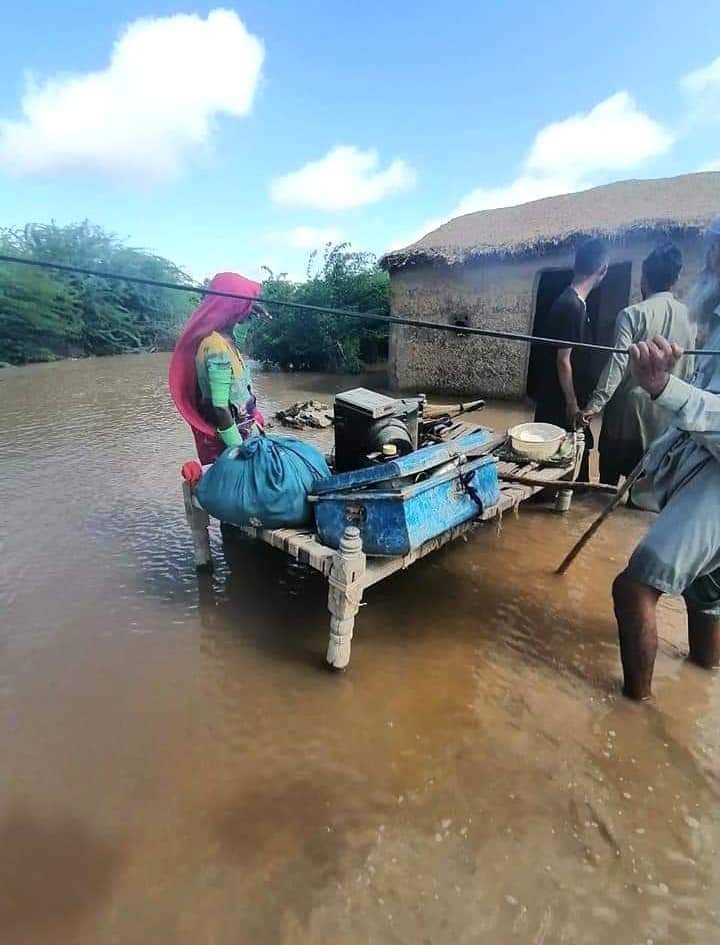
Project activities
Like the past natural disasters (Covid19, floods in 2010-11, drought etc), they had been looking towards the NGOs with a hope that they would be provided with some financial assistance too to meet their various above-mentioned needs. The SSEWA-PAK, due to its very limited local resources, was not able to support them. SSEWA-PAK thank God that through PPI, Oxfordshire Community Churches, UK & Rotary Germany provided the opportunity and financial resources for supporting the most affected families.
Under Flood Rapid Relief Response (FRRR 2nd phase) project, SSEWA-PAK implemented the project with the Coordination of Rotary Club of Mirpurkhas Mango City and selected 130 beneficiaries for financial assistance of Rs. 10,000 PKR. The details of each partner mentioned below:
- SSEWA-PAK 60 Beneficiaries
- Rotary Club of Mirpurkhas Mango City 40 Beneficiaries.
- Desert Care Challenge 30 Beneficiaries
All the partners conducted assessment as per the criteria and distributed Rs. 10,000 PKR (about 32 EUR) to their vulnerable beneficiaries in a dignified manner in the month of March 2023.
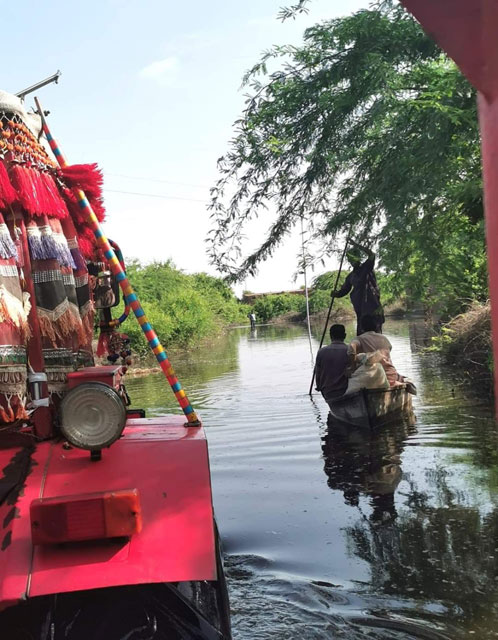
ICC - Project No. 7
Kohistan Early Recovery Projects (KERP)
Please click for their project report
Please click for their project report
